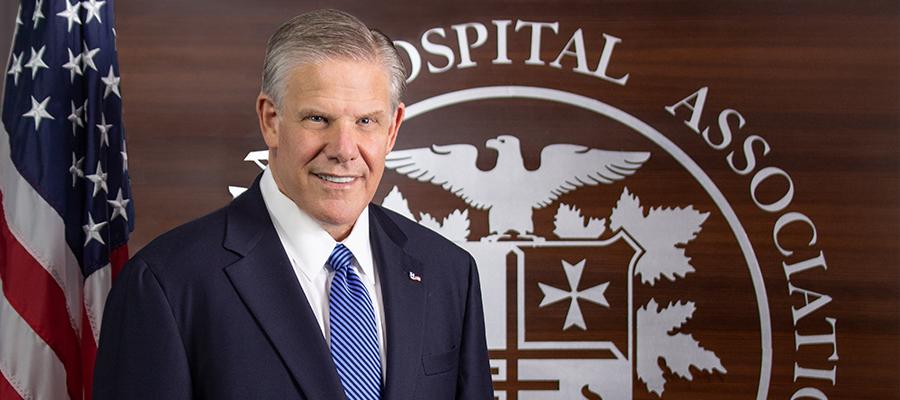Perspective: Highlighting Workforce Challenges and Solutions

As every health care leader today can testify, the pandemic has tested the resilience of our health care workforce like never before. And as we know, without a resilient health force, we cannot exist. Our entire health care system breaks down. It's as simple as that.
There is no higher priority than ensuring that we care for the caregiver, that we make our working environment safe, and that we foster the ability for individuals to have joy in their work.
This has magnified the need to create resources and provide tools to ease stress and anxiety and increase a sense of well-being for our caregivers to enable them to focus on their mission of providing healing care.
During an AHA-sponsored Capitol Hill virtual briefing on Tuesday, hospital leaders discussed how COVID-19 has accelerated long-standing health care workforce challenges.
AHA Board Member Mary Beth Kingston, R.N., chief nursing officer at Advocate Aurora Health (headquartered in Milwaukee, Wisc., and Downers Grove, Ill.); David Zaas, M.D., CEO at MUSC Health-Charleston Division and chief clinical officer at MUSC Health in Charleston, S.C.; and Leonard R. Hernandez, president and CEO at Susan B. Allen Memorial Hospital in El Dorado, Kan., described a wide range of challenges their organizations are experiencing. They include workforce shortages that can lead to reduced services to patients, increased costs for staffing and supplies, and mental health fatigue and burnout.
They also shared potential short- and long-term solutions to address these challenges, as well as how to preserve access to care while preparing for the future health care needs of the nation. You can watch a highlight video with key insights from the briefing.
Meanwhile, we’re continuing to work on a number of fronts to support you and your teams on the front line.
These include asking Congress and the Administration to include key workforce provisions in the social spending legislative package being considered under reconciliation, as well as making sure COVID-19 emergency relief funds are distributed to hospitals and health systems as quickly as possible.
And just this week we released a number of new resources, including a comprehensive report examining the latest factors and trends affecting the health care workforce, as well as guidance on how to navigate workforce-related challenges to achieve resilience, flexibility and capacity. We also shared a guide on creating safer workplaces and mitigating violence in health care settings.
A strong and resilient workforce is the backbone of our hospitals and health systems. Our teams have been on the front lines battling COVID-19 for nearly two years. And despite the many challenges they have faced, they remain steadfast in their commitment to provide care and improve health. Let’s make sure they have the support they need to fulfill that mission.

